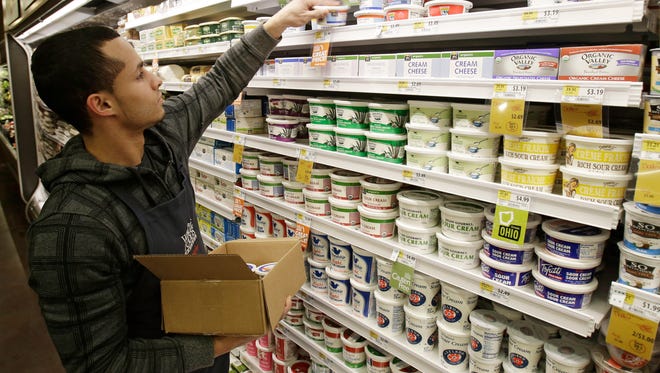INFLATION Q&A: What you need to know about rising prices

Since the Great Recession ended in 2009, Federal Reserve policymakers have been trying to juice weak inflation, which can hurt the economy by prompting consumers to put off purchases because they know prices will stay low. Finally, inflation seems to be firming a bit, giving the Fed more confidence to raise interest rates Wednesday for the first time this year and the second time since 2006.
Here’s a quick primer:
Q. What is inflation?
A. Inflation is the increase in the price of goods and services.
Q. What causes it?
A. Inflation can accelerate if demand for a product is high and prices are low. Recently, the low unemployment rate has begun to push up wage growth a bit as employers compete for a smaller pool of available workers. That, in turn, can nudge up prices as businesses try to maintain their profit margins in the face of higher labor costs.
Q. Why should you care about inflation?
A. Sharp price increases reduce consumer’s purchasing power. That can be especially troublesome for savers and people on fixed incomes. Borrowers may benefit if they can pay back loans in future dollars that are worth less and the interest rate on the loan doesn’t fully account for the rise in inflation. But businesses may hold off on capital investment because of the uncertainty inflation causes.
Q. Why has inflation been so low?
A. The economy has grown just modestly since the recession, and so demand for many products and services hasn’t come close to outstripping supply. Also, a weak global economy has kept a lid on energy prices. And a strong dollar has curtailed import prices for U.S. consumers.
Q. Has inflation now become a concern?
A. No. A measure of inflation that the Fed watches closely, the personal consumption expenditure price index, was up 1.4% annually in October from 1.2% the previous month. That’s still well below the Fed’s 2% target, though it marked the highest level in two years as the effects of low gasoline prices have started to fade. So-called core inflation, which excludes volatile food and energy costs and which the Fed considers a better indicator, was up 1.7%, matching a recent high.
Q. Then why is the Fed expected to raise interest rates?
A. The Fed’s benchmark interest rate is still very low by historical standards at 0.4%. Fed policymakers want to start lifting the rate gradually now so that higher rates can be effective when inflation becomes more of a concern in a year or two. Otherwise, the Fed might have to hike the rate abruptly, spooking markets and possibly derailing the economic recovery if borrowing were to decline dramatically.
Q. How do interest rates affect inflation?
A. The Fed’s key rate affects rates across the economy, including for auto loans, mortgages and corporate bonds. Theoretically, higher rates should discourage some borrowing and therefore reduce customer demand, easing the pressure on prices.
Q. Is inflation expected to accelerate?
A. Yes. Faster wage growth already was fueling expectations for higher inflation in a year or two. President-elect Donald Trump’s proposal to cut taxes and boost infrastructure spending by as much as $1 trillion, and an OPEC deal to cut oil production to support prices, has further stoked inflation prospects. The developments have pushed up long-term bond yields and could prompt the Fed to raise rates faster than it anticipates.